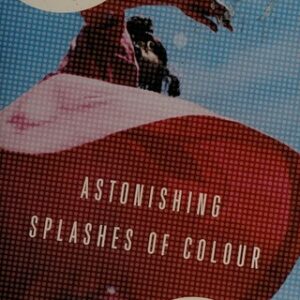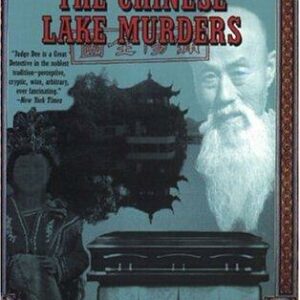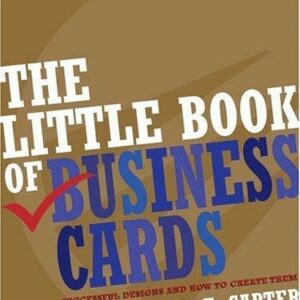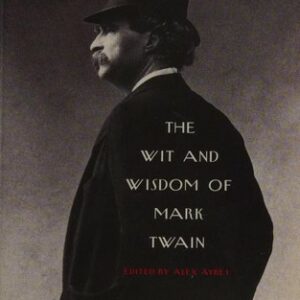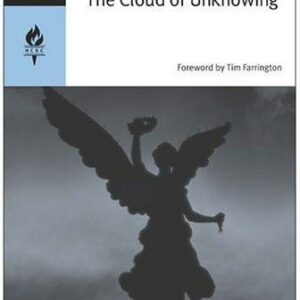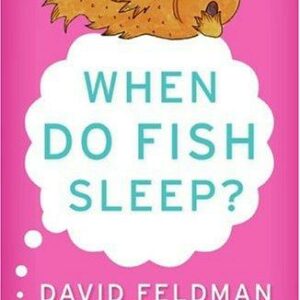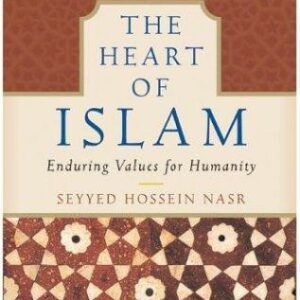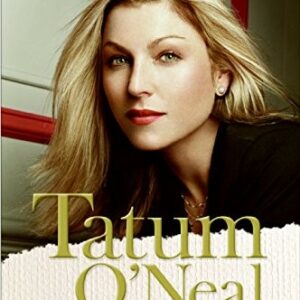The Dream Life of Sukhanov
$16.00
| Title | Range | Discount |
|---|---|---|
| Trade Discount | 5 + | 25% |
- Description
- Additional information
Description
Olga Grushin’s astonishing literary debut has won her comparisons with everyone from Gogol to Nabokov. A virtuoso study in betrayal and its consequences, it explores—really, colonizes—the consciousness of Anatoly Sukhanov, who many years before abandoned the precarious existence of an underground artist for the perks of a Soviet apparatchik. But, at the age of 56, his perfect life is suddenly disintegrating. Buried dreams return to haunt him. New political alignments threaten to undo him. Vaulting effortlessly from the real to the surreal and from privilege to paranoia, The Dream Life of Sukhanov is a darkly funny, demonically entertaining novel.Ironic, surreal, sometimes stunning and always chaotic . . . Gogolesque in its sardonic humor. (The New York Times)
The Dream Life of Sukhanov will tower over the majority of what publishers put out this year. (New York)
Steeped in the tradition of Gogol, Bulgakov, and Nabokov, Grushin is clearly a writer of large and original talent. (James Lasdun)
Grushin has imagined both Sukhanov’s carefully managed life and his richly troubling personal history with a detailed intensity that fruitfully echoes Solzhenitsyn’s best books, Tolstoy’s ‘The Death of Ivan Ilyich’ and John O’Hara’s Appointment in Samarra. (Kirkus Reviews, starred review)
The next big thing in American literary fiction . . . so accomplished are her skills—so hauntingly assured—that more than one US critic has greeted her as the next great American novelist. (Financial Times)
Harks back to the great Russian masters [and] breathes new life into American literary fiction. (Jonathan Yardley, The Washington Post Book World)Olga Grushin was born in Moscow in 1971. She studied at the Pushkin Museum of Fine Arts, Moscow State University, and Emory University. Her short fiction has appeared in Partisan Review, Confrontation, The Massachusetts Review, and Art Times. This is her first novel. Grushin, who became an American citizen in 2002, lives in Washington, D.C.
INTRODUCTION
The Dream Life of Sukhanov
At fifty-six, Anatoly Sukhanov has wrapped himself in a cocoon of comfort, safety, and self-satisfaction. He’s married to Nina, his own “perfect vision of beauty.” His two children, one a future diplomat, the other a future journalist, are gifted and ambitious. He has a house in the country and his apartment in old Moscow is “a seemingly endless expanse of rooms . . . their comfortable dusk scintillating with the honeyed luster of parquet floors, damask wall upholstering, golden-flecked book bindings . . . and countless other precious possessions” (p. 33). He holds the enviable post of editor in chief of the country’s most prestigious art journal, Art of the World, where he enforces the communist party line on questions of artistic taste.
But such safety and security seem, in this extraordinary first novel, to invite disaster, and disaster is what comes to Sukhanov, as all the unconscious contents he has worked so hard to repress begin to shatter the smooth surface of his life. His estranged friend Lev—who held onto his artistic dreams when Sukhanov betrayed his own talent for a secure position—appears out of the darkness one evening to invite him to a gallery opening. A long-forgotten cousin moves into his apartment to sleep in his bed and challenge his tepid, state-sanctioned views about the nature and purpose of art. His ties are mysteriously stolen, his wife grows more distant and his children begin to voice their contempt of the life he has chosen to live. More disturbingly, his dreams and reveries remind him of childhood pain, his father’s lunacy and suicide, the teachers who opened the world of beauty to him, and the passionate idealism and fierce artistic independence he chose to abandon. In his own art he had been drawn to the wild freedom and irrational exuberance of surrealism; now, he must denounce it as a deformed child of capitalist decadence. In one of the novel’s many lacerating ironies, Sukhanov’s own life takes on the nightmare logic of a Dali painting, where familiar objects lose their solidity, and dream and reality, hallucination and revelation, trade places.
In prose that is at once extravagantly lyrical and psychologically precise, Olga Grushin traces Sukhanov’s emotional unraveling—an unraveling that parallels the collapse of the Soviet Union itself. Sukhanov stands at the intersection of personal and political history, and gets run down by forces beyond his reckoning. Having sold his soul to get ahead in the old regime, he cannot survive its disintegration. And while Grushin is unflinching in her portrait of Sukhanov’s betrayals—and the consequences of those betrayals—she also reveals Sukhanov’s suffering, all the pain and fear that made his choices seem wise when he made them.
ABOUT OLGA GRUSHIN
Olga Grushin was born in Moscow in 1971. She studied at the Pushkin Museum of Fine Arts, Moscow State University, and Emory University. Her short fiction has appeared in Partisan Review, Confrontation, The Massachusetts Review, and Art Times. This is her first novel. Grushin, who became an American citizen in 2002, lives in Washington, D.C.
A CONVERSATION WITH OLGA GRUSHIN
Q. I couldn’t help thinking of Tolstoy’s The Death of Ivan Illych—another story about a man who tries to live in a cocoon—as I read The Dream Life of Sukhanov. Has Tolstoy been an important influence on your writing?
A. The Russian classics were my entry to the world of literature, and my novel, while sheathed in an English-language skin, is set firmly within the Russian literary tradition. Indeed, references and hidden tributes to Gogol, Chekhov, Nabokov, and Bulgakov, among others, are scattered throughout the book. That said, I did not consciously think of Tolstoy as I was writing it. He is arguably the greatest Russian novelist—Nabokov once proclaimed him the “greatest Russian writer of prose fiction”—but the early impression his works made on me was one of such monolithic magnificence, such overwhelming awe, that of all the Russian giants, he is the only one I have yet to approach as an adult reader. Whatever influence there is—and I have no doubt of its existence—it must lie in a misty realm of adolescent wonder.
Q. You’ve said that Nabokov is your favorite writer. What aspects of his work do you find especially engaging?
A. Of course, there are all the obvious things—the dizzying linguistic somersaults, the beauty of images, the astonishing riches of erudition always at Nabokov’s fingertips, the subtle jokes and riddles, the pleasure of a chill one gets upon making a sudden connection or glimpsing for the first time the unexpected whole as another piece of a puzzle finds its intended place. For me, though, there is a Russian Nabokov and an American Nabokov; and while I admire Nabokov’s elaborately constructed, technically dazzling American novels, it is the earlier, more traditional, Russian novels, such as Luzhin’s Defense, Glory, Mary, and especially The Gift, that I truly love. They display all of Nabokov’s trademark virtuoso magic, but they also have this heartbreaking warmth, this piercing humanness, this longing for a disappearing world, a dying culture, all conveyed in the most classic and yet most recognizably unique Russian language—a perfect end piece, in my mind, to the whole grand tradition of Russian classic literature, and very dear to me as a writer, a reader, and a Russian.
Q. Did you or your family experience firsthand the kind of political repression you write about in The Dream Life of Sukhanov?
A. I myself was too young to experience fully the exigencies of life under an oppressive regime, but my family did have its share of troubles. My father, Boris Grushin, who is considered one of the founders of Soviet sociology, pioneered public opinion studies in the country. Since for decades his area was a taboo subject—the whole enterprise was, after all, based on the highly questionable premise that regular citizens could have differing opinions about life, or even (gasp!) government—he constantly found himself at odds with those in power. In the mid-1970s, he dared to propose a revolutionary sociological approach and witnessed a full-scale attack mounted against him in the press. Branded as “anti-Marxist,” he lost his job and became virtually blacklisted—a persona non grata in his field. At one point he was so desperate he seriously considered a position at the Institute of Entomology, which some friends had procured for him, even though his knowledge of insects was limited to swatting flies and helping me pin my summer catches under glass. (I was then four years old.) In the end, another influential friend offered him a job as a journalist at a magazine in Prague, and we lived there for five years, until such time as my father could return to Moscow and resume his work. We were luckier than many in my parents’ circle. Among others, the artist Ernst Neizvestny, a close family friend whose wonderful illustrations to Dante’s Inferno lined the walls of our Moscow apartment, famously stood up to Khrushchev during the Manege exhibition (a central behind-the-scenes event in my novel), and was eventually forced to leave the country for good.
Q. Much of The Dream Life of Sukhanov revolves around the purpose of art and the relationship between free creative expression and what the Soviet Union saw as the social function of art. How do you see your own writing in relation to these tensions?
A. The dichotomy between art as free creation and art in service of the state is particularly dramatic in totalitarian societies like Soviet Russia; it acquires additional moral, political, historical depths, which I attempt to explore in the book. But of course it also reflects a universal, and millennia-old, conflict between art as a means of untethered self-expression, of creating an inner world, in other words, “art for art’s sake” (epitomized by Chagall’s “upside-down green face,” as one of my characters puts it) and art as a means of presenting a noble social message, of changing the outside world, in other words, “useful” art. As a young writer in search of an audience—and one raised on the Russian notion that an artist is a sort of tribune whose sacred trust is to give voice to the people—I find the debate fascinating, and far from black and white. Ultimately, though, I fall squarely on the “green face” side of the controversy. I believe that “pure” art, when powerful enough, has a much greater capacity to change the world than any “topical” art of the moment—which, I suppose, is simply a wordy way of saying that I think one should write or paint what one wants.
Q. Could you talk about the mode of narration in the novel? Why do you sometimes switch from an omniscient narrator to Sukhanov narrating his own story?
A. The somewhat unusual approach—the switches between the two voices, the two tenses, the two realities—seemed to me the only way to convey the full extent of Sukhanov’s tragedy. After I finished the first draft, I experimented with converting the first-person segments into third person, and I felt that the novel lost its natural intonation. There is no omniscient point of view as opposed to the character’s own point of view in the book, as absolutely everything is perceived through Sukhanov’s eyes and heard through Sukhanov’s ears (even if not necessarily registered by Sukhanov’s mind); rather, the two different voices, while both belonging to Sukhanov, underscore the rift between his present and his past, his life as it is and his life as it could have been, his tormented double nature—the conventional, staid, remote, soulless “third-person” bureaucrat he has become and the urgent, brilliant, alive “first-person” (and occasionally present-tense) child and artist that he was. The eventual blurring of the two narrative modes reflects Sukhanov’s disintegrating sense of self as his two lives collide.
Q. What is life like for artists and writers in Russia now? How different is the literary situation here in the United States?
A. Traditionally, art held a position of unique importance in Russia. For most of the last two centuries, the artist—whether writer, painter, or composer—was often seen as a figure of immense power, a prophet, a warrior, a savior, whose holy duty was to proclaim the Truth in times of trials and tribulations. In today’s Russia, the landscape is staggeringly different: as market forces have replaced political repression, the public increasingly favors entertainers over prophets, and the new generation of writers and artists must master the craft of promoting and selling instead of the once-vital craft of writing between the lines or painting between the cracks—a different brand of survival skills altogether. The transition has not been easy, and I have heard many say that their freedom of expression has come at a price, and a steep one at that. I myself do not have any firsthand experience of the Russian literary world, but I suspect that at this stage, with Russian publishing still breaking in its new commercial shoes, it is much harder for one to publish noncommercial fiction in Russia than in the United States. On the other hand, the fact that blacklists and gulags are things of the past must surely count for something.
Q. How have readers and critics in Russia responded to your book? And what about those here in the United States?
A. There is no Russian translation of the novel as of yet, and while the few reviews that have appeared in the Russian press have been quite favorable, my book has so far reached only English-speaking Russians. Of course, I very much hope that the novel will be published in Russia someday. As for the reception in the United States, it has been an ongoing, deepening, pleasant surprise: I never expected to find so many wonderful, perceptive readers who could see beyond the seemingly exotic trappings of the story and relate, often on a very emotional level, to the universal nature of my character’s dilemma.
Q. Could you describe the creative process involved in imagining the consciousness of someone like Sukhanov, someone quite different from yourself—a middle-aged art magazine editor in the Soviet Union whose life is unraveling? How do you get so convincingly inside the minds and hearts of your characters?
A. For me, one of the more enchanting aspects of writing is the flight of fancy, if you will, that comes with the freedom to inhabit absolutely anyone’s life for a span of some pages. In my short stories, I have written from the perspective of a little boy who collects stamps, a Greek policeman on a remote island, an old photographer, a drunk ballet dancer, even a pair of shoelaces—but only once or twice from the viewpoint of a young woman. On the other hand, while none of the characters in my novel is autobiographical, many carry a little piece of myself, a familiar emotion, a possible choice, a chance thought—rooted mainly in the shared happenstance of being human, I suspect, rather than any gender, age, or factual similarity between me and the figments of my imagination. Sukhanov’s predicament is very human—a choice between his dreams and his family, between uncertainty and security, between a nebulous notion of future accomplishment and a simple, everyday happiness. Picturing myself in his shoes did not stretch my imagination as wildly as one might think.
Q. Sukhanov is first fascinated by surrealism, later forced to denounce it, and finally seems to be subsumed by it in his own Daliesque hallucinations. Why did you choose to make surrealism such a central part of the novel?
A. The fantastic, the surreal, the nightmarish or fairy-tale underside of daily life, has always been present in my writing. I like to find the absurd, the disturbing, the magical amid the ordinary, and when I considered the kind of art Sukhanov was likely to create in his youth, surrealism seemed the natural choice. On the literal level, its dreamy, incomprehensible, whimsical nature is the ideological opposite of the state-enforced socialist realism, and Sukhanov would inevitably be required to denounce it in the line of duty as a Soviet critic; making him a devout surrealist thus added a necessary element of betrayal to his dilemma. On another level, surrealism, with its controversial theoretical underpinnings, its cult of the subconscious, suggested an interesting angle from which to explore the line between artistic genius and insanity, the nature of creation, the purpose of art. Most importantly, it offered a perfect metaphor for the sudden dissolution of Sukhanov’s superficially perfect, solid world. As his existence begins to fold in on itself, his past self, his would-be life, his long-repressed artistic nature burst the dams of his public facade, and the surreal and the mad become the essential components of his story.
DISCUSSION QUESTIONS
US
Additional information
| Weight | 10 oz |
|---|---|
| Dimensions | 0.8000 × 5.1000 × 7.7000 in |
| Imprint | |
| ISBN-13 | |
| Author | |
| Audience | |
| BISAC | |
| Subjects | russian, Literature, art, german, french, eastern europe, russian history, artists, election, literary fiction, essays, translation, short stories, FIC037000, political books, fiction books, books fiction, realistic fiction books, literary criticism, novella, postmodernism, russian literature, fiction psychological, Soviet, classic, philosophy, politics, feminism, photography, historical, war, writing, Film, arts, modern, music, political, novels, romance, love, drama, fiction, mystery, gender, literary, FIC025000, dystopia, roman, 20th century, 21st century |
| Format |


